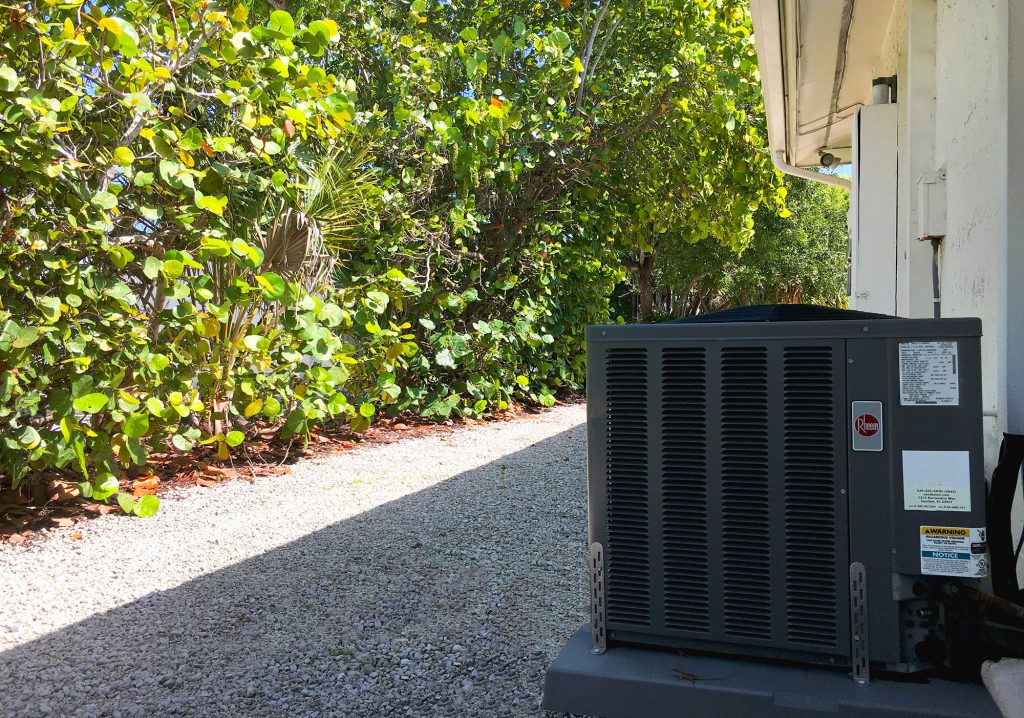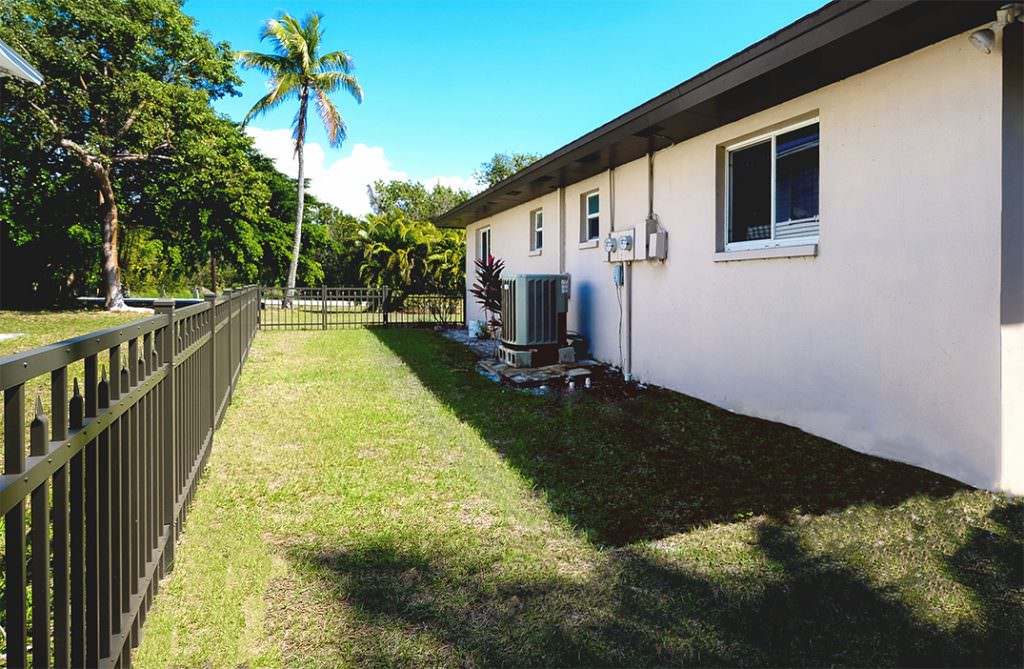Two recent events have brought to my attention the need to share information on proper air conditioner maintenance. I’ll start by saying, yes, your AC requires routine maintenance!
I have learned this the hard way, as a member of my family, and also a client of mine have both recently experienced malfunctions in their AC systems that have resulted in water damage and costly repairs.
Spotting the Problem
In the case of my sister’s home, I discovered the leak when I was checking up on her property one afternoon. As soon as I walked in, I could feel the humidity level, and smell the water damage. It turns out, the drain line for her AC was clogged, causing the condensation to accumulate in the drain pan until it eventually overflowed and even burst the pipe. Yikes!
Keep in mind, her AC unit is only about 5 years old, and it does have precautionary float switches that are supposed to shut the unit off when the water rises to a certain level. However, both floaters failed in this case, causing a fair amount of water to flow into her home, soaking her floors and baseboards.
It has caused quiet a headache, as you can imagine, with remediation specialists and insurance adjusters all involved in the repair process. One thing we have learned from all of this is the importance of regular AC maintenance!
Preventative Maintenance
We’re all guilty of it, myself included. I can’t remember the last time I changed our air filter, or even had a professional out to service our unit. These are things you don’t normally think about until something stops working as it should.
But I’ll tell you, these two situations have taught me valuable information about how to properly care for your AC unit… information that I think is worth sharing with fellow Sanibel homeowners, or those looking to purchase a home here in Southwest Florida.
The exposure to salty air, heavy wind and rain here on the Gulf Coast really takes a toll on your Florida air conditioner. While most local air conditioning companies have adapted their systems to withstand harsh environmental conditions, routine maintenance is still necessary to avoid common AC disasters.
Here’s what you can do:
- Change your filter every month. I know, it sounds like a lot, but at least check to make sure your filter isn’t dirty, which causes your unit to work twice as hard.
- Make sure the AC does not have debris laying on top or near the unit. I learned that there should be at least 12 inches between your AC and any shrubbery or housing you have hiding the unit – which I know can be an eye-sore for curb appeal.
- Pay attention to any hot or cold spots in your home, and be sure to point them out to your technician. This helps determine if your unit is distributing air as intended, and is the proper size for your home’s needs.
Here’s what you need a professional to do:
- Inspect the condensation drain! This is what we experienced with my sister’s house. A technician can check to make sure the drain is flowing freely.
- Check refrigerant levels. This is something I never thought of, but your AC could lose charge over-time, causing the machine to work harder, and your monthly energy bills to increase. If your air conditioner not as cold as it used to be, it could be a sign that the refrigerant levels need to be checked to ensure efficient cooling performance. You may hire this expert in air conditioning repair in port st. lucie if you need professional services.
- Check voltage and currents. I would definitely leave this to the professionals, as they can test your connections to make sure the unit is operating safely and efficiently.
- Lubricate moving parts. Just like your other home appliances and equipment, your AC unit has moving pieces that are exposed to conditions favorable for rust buildup. Your technician will know which parts to check and lubricate every so often.
- Inspect your ductwork. I’m not sure if all air conditioning companies do this, but it is certainly worth checking every year to make sure your AC’s insulation and seals are holding as intended. Energy efficiency not only helps save environmental resources, but also helps save money on your energy bill, and increases the lifespan of your AC unit.
I hope my story, along with these few tips have brought to light an important topic for homeowner’s here on the islands. Don’t wait until your AC starts acting up to call a technician.
We have awesome HVAC companies on Sanibel, who truly take care of their clients and help prevent major problems. I’d be happy to share their information with you! Shoot me an email at susan@mccallionrealty.com, or call the office at 239-472-1950 and the girls can point you in the right direction.



